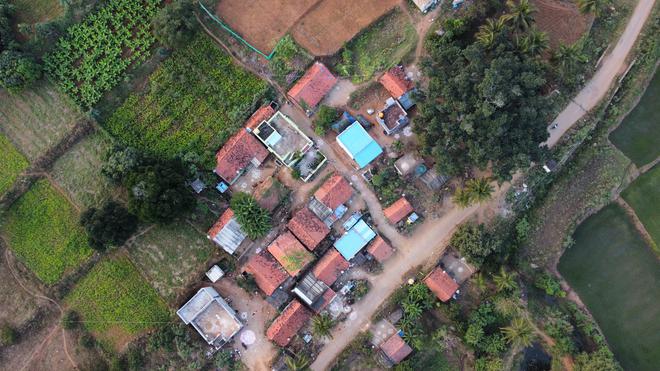Dinesh Kshatriyan, the IIT-Madras research scholar and entrepreneur, best known for being the first person in India to have a wedding reception in the Metaverse, now has a new claim to fame. His initiative Bring Back Bees (BBB), diverts the economic potential of NFTs towards a rather unexpected cause — bee farming in Tamil Nadu, Gujarat and Punjab.
As a biker, Dinesh has been to hill stations where he’s seen people destroying hives and killing bees just to take their honey, so he decided to take action. After looking into apiculture, otherwise known as bee farming, he found a way to keep the “ecosystem in balance.”
“Without the bee, the human race would end in four years,” Dinesh says, in quoting a popular statement often attributed to Albert Einstein. Although its relation to Einstein is doubtful, the claim, for the most part, is real. According to a report by the United Nations Environment Programme, of the 100 crop species that provide 90% of the world’s food, over 70 are pollinated by bees.
“We want to educate people about apiculture. I started doing research on that. I saw that the Indian Government was spending a lot of money to educate people since they have a goal [to reach] by 2030 [in the apiculture industry]” says Dinesh. “I thought, why can’t we bridge that [gap]?”
What is Binance coin?
This thought inspired him to start India’s first apiculture-based NFT. “We minted a total of 33 NFTs and have sold 28 since July 1,” says Dinesh, adding that he expects to sell the rest by the end of the week. Priced at 0.25 BNB, they are available on WazirX, and have been created by four different artists. BNB, otherwise known as Binance coin, is one of the largest cryptocurrencies, by market capitalisation, in the world. It is issued by Binance exchange and costs, as of July 7, ₹18870.31.
“Right now for each NFT [sold], we will be buying a bee box and giving it to a farmer for free. We will teach that farmer about apiculture and monitor their work. We are also trying to build an e-commerce website to help farmers sell their honey and byproducts,” states Dinesh.

Of the rearable bees that can be used, the project uses Indian bees, which adapt better to local conditions. Further to this idea of local pride, Dinesh decided to base BBB in his wife’s native village Gearatti, Tamil Nadu as the hill-station’s residents are already open to the idea of bee farming, and are ready to provide space and support for the initiative.
The Apiary, the moniker given to this project by BBB, expects to be a pan-India brand after its launch. The team is in talks with Anna University’s Apiculture Department to start work in Madurai, and are looking to expand to Gujarat and Punjab as well, owing to their rich beekeeping culture.
“We’re planning to build this ecosystem in a decentralised way so that that the Government will have data on how many bee hives have been started and how many places this covers. That part [is something] we want to do as our bit, as youngsters, for the society,” adds Dinesh.
Dinesh hopes that with the project garnering attention and headlines, more farmers will be encouraged to contact BBB directly. “We’ll be providing them our number and website link. If they’re ready to start bee farming we’ll directly go there and deploy it. We’ll also be partnering with NGOs who have been doing it traditionally,” he states.
Despite having recently launched, BBB has seen a positive response. “As of July 10 we will have provided 20 bee boxes,” says Dinesh, adding that by July 20 they expect to set up 13 more boxes in Gummidipoondi.







